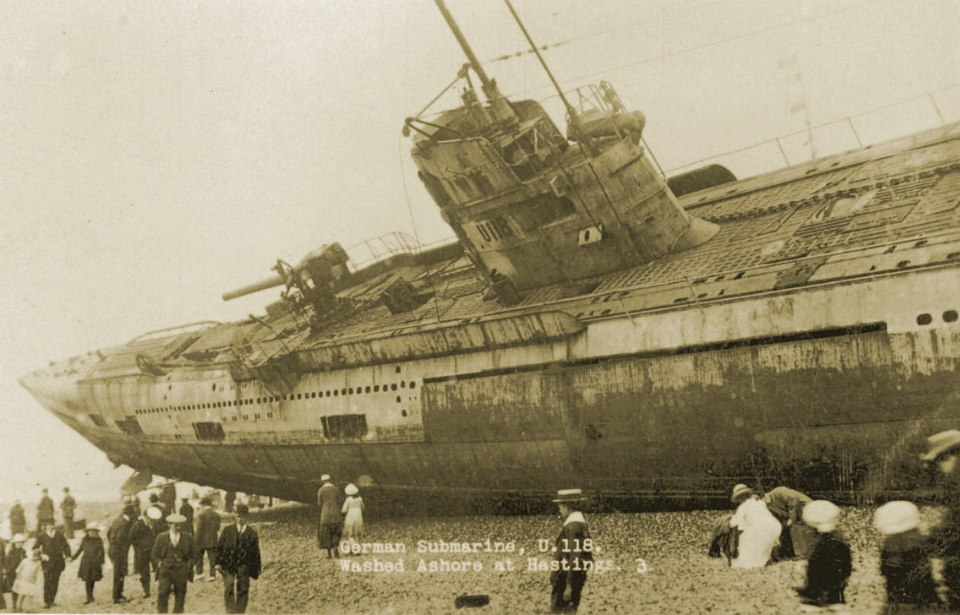In the aftermath of the First World War, a remarkable event unfolded in Britain, causing a stir among military and civilian circles: the unexpected arrival of the German U-boat SM U-118. The fact this once-mighty war machine was stranded on British soil (or, to be more precise, sand) was both spectacular and puzzling.
U-118 participated in the First Battle of the Atlantic, prowling the ocean as part of Germany’s formidable U-boat fleet. She sunk two British vessels – the steamer Wellington and tanker Arca – over the course of her short career, before being surrendered in Harwich by the Imperial German Navy on February 23, 1919.
The Allies intended to tow U-118 to Brest. On April 15, 1919, while journeying to the French port city, a storm struck and the U-boat broke from her towing lines. This is how she washed ashore on a beach in Hastings, Sussex. U-118 beached around 12:45 AM, right in front of the famous Queens Hotel. While efforts were made to dislodge the vessel, all were unsuccessful.
The spectacle drew massive attention, and crowds flocked to view the massive U-boat. Local authorities even began taking people on deck tours, so long as they paid a small fee. Everything they earned was used to welcome British servicemen home from the war.
These tours were quickly stopped when two of the Coast Guardsmen running them became very ill; both were dead by February 1920 from abscesses in their brains and lungs, caused by toxic chlorine gas leaking from the U-boat’s batteries.
More from us: A WWII-Era Mystery for the Ages – What Happened to the French Submarine Surcouf?
U-118 was completed dismantled by 1921. While there are no visible remnants left on the beach in Hastings, it’s always possible that some fragments of the German vessel remain hidden beneath the sand.
